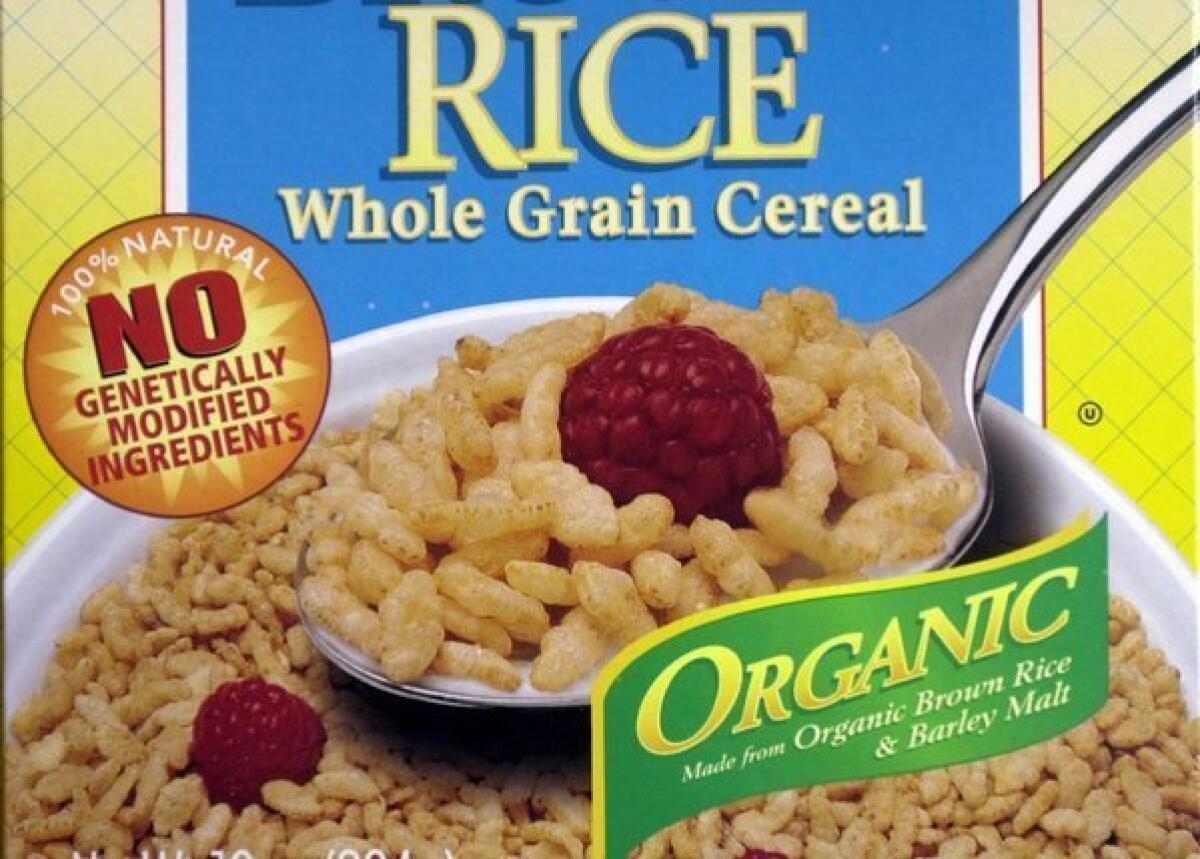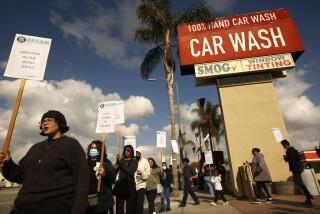Is Proposition 37 back to the future for unfair competition suits?

Proposition 37, the ballot measure to require labeling of genetically modified foods sold in California, includes a provision that allows anyone to sue over a product that allegedly should have been so labeled but wasn’t. In that sense it is an indirect descendant of a 2004 ballot measure that changed California’s unfair competition law. If it passes, it would ever so slightly roll back that measure.
Some explanation is in order. California was once famous, or perhaps notorious, for how easy it was for plaintiffs to sue under what lawyers refer to as Business and Professions Code Sec. 17200 -- and what everyone else calls the unfair competition law. It used to be that if you wanted to sue a business for, say, advertising that the product it was selling was “Made in the USA” when some components may have been foreign made, you could. To have standing as a plaintiff, it was not necessary to demonstrate that you were injured by the alleged misinformation. In fact, you didn’t even have to show that you bought the product based on your belief in the statement on the package. You didn’t even have to buy the product. You could just sue.
It was part of what’s known as a “private attorney general” law. That describes several different legal phenomena, but the key point here is that it made every Californian into a sort of state official by granting legal standing to sue under Sec. 17200. Just as the elected attorney general could proceed against a company for alleged unfair competition without demonstrating that he suffered any damage, so could anyone else.
ENDORSEMENTS: The Times’ recommendations for Nov. 6
And if you sued and won, you could recover damages. People could, and sometimes did, become professional plaintiffs, looking for situations that could arguably support unfair competition claims. You didn’t even have to sue; you could just threaten, and sometimes the target of your suit would pay just to settle and avoid a suit. Some plaintiffs, and especially lawyers, cashed in big with these shakedown suits. Chambers of commerce called this phenomenon “lawsuit abuse.”
Eight years ago Californians adopted Proposition 64, which among other things limited standing to sue under Sec. 17200 to only those plaintiffs who could allege they were in some way injured. So at the very least you have to buy the product in question and usually have to show you suffered some loss because of it.
Proposition 64 was just one episode in the perpetual battle between the trial lawyer and business lobbies. They’re sort of like what the roadrunner and the coyote would be if, instead of running and chasing, the cartoon characters kept going to court over allegedly defective or mislabeled Acme products.
PHOTOS: Seven foods, genetically engineered
The enforcement provision of Proposition 37 would reopen a door, or perhaps a window, to universal standing to sue. You would not have to prove that you were injured by a product that allegedly should have been labeled but was not. You would not even have to show that you bought the product based on your belief in the label or lack thereof, or that you bought the product at all.
It would be back to the future.
But only a little. You’d have standing to sue, but you could not recover monetary damages. Your only recourse would be injunction -- to force a company that should be labeling to do so. Any actual fines would go to the state, not the plaintiff.
But wait: The plaintiff could also recover reasonable attorney fees. Could lawyers get back into the shakedown lawsuit business? Some opponents of Proposition 37 say yes. It would be up to judges to determine just what a “reasonable” fee would be for representing a plaintiff (or a dozen or 100) in a suit over an allegedly mislabeled product (or a dozen of them. Or 100).
ALSO:
Endorsement: No on Proposition 37
The rarely noticed clause in Proposition 37
Recap: All Los Angeles Times ballot endorsements, at a glance
More to Read
A cure for the common opinion
Get thought-provoking perspectives with our weekly newsletter.
You may occasionally receive promotional content from the Los Angeles Times.







